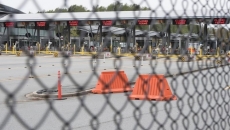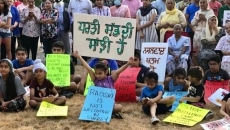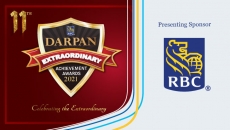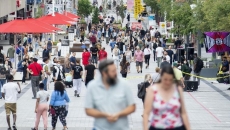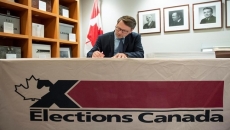OTTAWA - Canadians may not be thrilled with the outcome of last week's federal election but a new poll suggests few are angry that it produced an almost identical result to the 2019 nation-wide vote.
Just 10 per cent of respondents to the Leger survey said they're happy with the outcome, which produced another Liberal minority government led by Justin Trudeau and only minor changes to the seat counts of all the parties.
But another 24 per cent said they're comfortable with the outcome, while nine per cent said they prefer a minority government in any event and 14 per cent said they're indifferent.
On the flip side, 12 per cent said they're angry about the outcome and six per cent said they're uncomfortable with it. Another 24 per cent said they're unhappy about it "but life goes on."
Conservative Leader Erin O'Toole has lambasted Trudeau for calling an unnecessary, $610-million election that changed nothing, all in the midst of a deadly fourth wave of the COVID-19 pandemic.
However, the poll, conducted Sept. 24-26, suggests Canadians are more sanguine about the result, possibly because they're lukewarm about O'Toole's leadership.
The online survey of 1,537 Canadians cannot be assigned a margin of error because internet-based polls are not considered random samples.
It suggests that O'Toole was less of an asset for his party than either Trudeau or NDP Leader Jagmeet Singh.
Just 23 per cent of those who voted Conservative said they did so because of the leader. Forty-nine per cent said they voted for the party itself while 28 per cent said they voted for their local candidates.
Among Liberal voters, 34 per cent voted for the leader, 41 per cent for the party itself and 25 per cent for their local candidates.
Among New Democrats, 38 per cent voted for the leader, 38 per cent for the party and 24 per cent for their local candidates.
Both O'Toole and Singh have faced some calls from within their own ranks to step down after their respective parties' disappointing finish. The Conservatives lost two seats, although they won slightly more of the popular vote than the Liberals, while the NDP gained one seat, remaining firmly stuck in fourth place.
Among Conservative respondents, 49 per cent said they want O'Toole to remain at the helm of the Conservative party. But a majority said either that they want him to go (22 per cent) or didn't know (29 per cent) if he should stay or go.
By contrast, 82 per cent of NDP respondents said they want Jagmeet Singh to remain as leader of the New Democratic Party.
Among Liberals supporters, 25 per cent said the main reason they voted Liberal was to avoid a Conservative government. Twenty-three per cent said they thought Trudeau was the best leader to lead the country and another 23 per cent said they thought the party best represented their values.
Among Conservative supporters, 39 per cent said they voted primarily to get rid of the Liberal government, 21 per cent backed the party they thought best represented their values and just 14 per cent chose the Conservatives because they thought O'Toole was the best leader.
Among NDP respondents, 48 per cent said the voted primarily for the party that best represented their values, just 14 per cent because they thought Singh was the best leader for the country.
In Quebec, 35 per cent of Bloc Quebecois supporters said they voted for the party they thought was best positioned to defend Quebec's interests. Another 14 per cent said they wanted a strong opposition party in a minority government while 11 per cent voted because of Leader Yves-Francois Blanchet.
Just seven per cent of Bloc supporters said they backed the party because of a question posed by the moderator of the English-language leaders' debate, which Blanchet claimed suggested Quebecers are racist.
Still, the poll suggests the Bloc did get a bump from the English debate. Thirty per cent of Bloc supporters said they made up their minds how to vote in the days following the debates — compared to just 15 per or less for supporters of the other major parties.
Overall, 49 per cent of respondents said they made up their minds before the campaign even started, 18 per cent in the opening two weeks, nine per cent over the final weekend and eight per cent on election day.
Just six per cent said the debates changed their minds about who to vote for. Fifty-five per cent said they didn't pay attention to them, while 39 per cent said the debates confirmed their previous choice.
Fully 83 per cent said they ultimately voted according to their original choice; 17 per cent said they switched parties over the course of the campaign.
In the end, 73 per cent said they voted primarily for the party they liked best. But 27 per cent said they mainly voted strategically to stop another party.
Among respondents who didn't vote, 29 per cent said they were indifferent about the election, 24 per cent said they didn't think their vote would change anything.
Other reasons given for not voting were physically or mentally incapable (13 per cent), the polling location was too far away (10 per cent), wait times were too long (nine per cent), afraid to show up because of the pandemic (nine per cent) and didn't know where to go to vote (six per cent).

